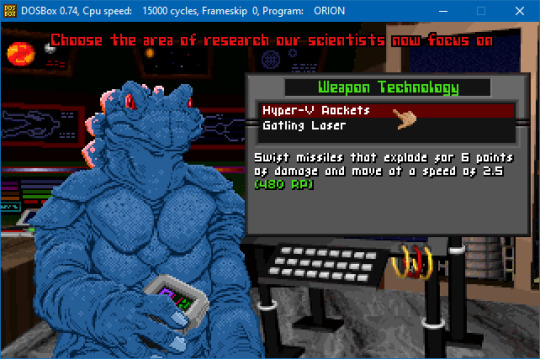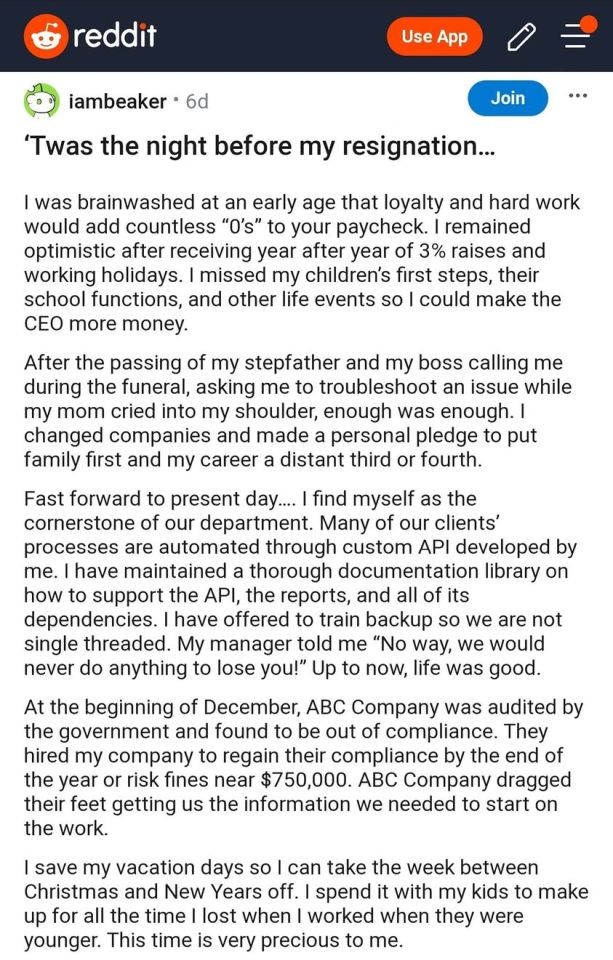#Automation Engineer Salary
Explore tagged Tumblr posts
Text

Know about the automation engineer salary and make better hiring decisions with Uplers
1 note
·
View note
Text
https://www.uplers.com/salary/?job_type=automation+engineer
Checkout the right salary for automation engineer with Uplers.
0 notes
Text
Python for Beginners: Launch Your Tech Career with Coding Skills
Are you ready to launch your tech career but don’t know where to start? Learning Python is one of the best ways to break into the world of technology—even if you have zero coding experience.
In this guide, we’ll explore how Python for beginners can be your gateway to a rewarding career in software development, data science, automation, and more.
Why Python Is the Perfect Language for Beginners
Python has become the go-to programming language for beginners and professionals alike—and for good reason:
Simple syntax: Python reads like plain English, making it easy to learn.
High demand: Industries spanning the spectrum are actively seeking Python developers to fuel their technological advancements.
Versatile applications: Python's versatility shines as it powers everything from crafting websites to driving artificial intelligence and dissecting data.
Whether you want to become a software developer, data analyst, or AI engineer, Python lays the foundation.
What Can You Do With Python?
Python is not just a beginner language—it’s a career-building tool. Here are just a few career paths where Python is essential:
Web Development: Frameworks like Django and Flask make it easy to build powerful web applications. You can even enroll in a Python Course in Kochi to gain hands-on experience with real-world web projects.
Data Science & Analytics: For professionals tackling data analysis and visualization, the Python ecosystem, featuring powerhouses like Pandas, NumPy, and Matplotlib, sets the benchmark.
Machine Learning & AI: Spearheading advancements in artificial intelligence development, Python boasts powerful tools such as TensorFlow and scikit-learn.
Automation & Scripting: Simple yet effective Python scripts offer a pathway to amplified efficiency by automating routine workflows.
Cybersecurity & Networking: The application of Python is expanding into crucial domains such as ethical hacking, penetration testing, and the automation of network processes.
How to Get Started with Python
Starting your Python journey doesn't require a computer science degree. Success hinges on a focused commitment combined with a thoughtfully structured educational approach.
Step 1: Install Python
Download and install Python from python.org. It's free and available for all platforms.
Step 2: Choose an IDE
Use beginner-friendly tools like Thonny, PyCharm, or VS Code to write your code.
Step 3: Learn the Basics
Focus on:
Variables and data types
Conditional statements
Loops
Functions
Lists and dictionaries
If you prefer guided learning, a reputable Python Institute in Kochi can offer structured programs and mentorship to help you grasp core concepts efficiently.
Step 4: Build Projects
Learning by doing is key. Start small:
Build a calculator
Automate file organization
Create a to-do list app
As your skills grow, you can tackle more complex projects like data dashboards or web apps.
How Python Skills Can Boost Your Career
Adding Python to your resume instantly opens up new opportunities. Here's how it helps:
Higher employability: Python is one of the top 3 most in-demand programming languages.
Better salaries: Python developers earn competitive salaries across the globe.
Remote job opportunities: Many Python-related jobs are available remotely, offering flexibility.
Even if you're not aiming to be a full-time developer, Python skills can enhance careers in marketing, finance, research, and product management.
If you're serious about starting a career in tech, learning Python is the smartest first step you can take. It’s beginner-friendly, powerful, and widely used across industries.
Whether you're a student, job switcher, or just curious about programming, Python for beginners can unlock countless career opportunities. Invest time in learning today—and start building the future you want in tech.
Globally recognized as a premier educational hub, DataMites Institute delivers in-depth training programs across the pivotal fields of data science, artificial intelligence, and machine learning. They provide expert-led courses designed for both beginners and professionals aiming to boost their careers.
Python Modules Explained - Different Types and Functions - Python Tutorial
youtube
#python course#python training#python#learnpython#pythoncourseinindia#pythoncourseinkochi#pythoninstitute#python for data science#Youtube
3 notes
·
View notes
Note
How's the labour market for industrial/manufacturing/automation engineering these days? My employer is getting to the "we all notice we're no longer recent grads but our pay doesn't reflect that" stage of their biannual engineer turnover cycle.
I'm not super up on the market, I have to look at a pretty limited subset of jobs I'm allowed to do. That said there's plenty of businesses hiring as far as I can tell, the main weakness of that job market is that between the shitty margins and overall complexity of the manufacturing industry, a lot of them can't compete with tech jobs on salary unless you're very senior, while tech jobs are happy to absorb mechanical and industrial engineers.
The other weakness is that the jobs are really diffuse, a company really only needs a handful of design and process engineers. If you're looking for that kind of work startups and small businesses are often the place to go, or huge engineering-focussed companies that have well-structured engineering departments.
The startups all need at least one guy, so there's proportionally more work per company, and they're constantly popping up and dying. The big companies have a lot of mid-level openings that are available to somewhat experienced engineers.
Downside of the former is that manufacturing startup is perhaps the least stable engineering business known to man, while for the latter career progression beyond the first few paygrades may literally be contingent on your superiors retiring or dying to clear space in the org chart, which is how my brother ended up in charge of his department.
16 notes
·
View notes
Text
I am once again recommending Master of Orion (1993).

It's thirty years old, it originally came on floppy discs, and it's really good. The interface is crisp. The ship design system is neat. The technology research system is not your standard tech tree. It has helpful hotkeys like "Indicate next world that has enemy fleet inbound". It has antifeatures like "not doing a Cinematic Camera Pan for several seconds". It has detail while avoiding micromanagement by giving you mostly high-level control, and automatic reassignment of overflow when something like factory construction fills up.
I say it again because of discourse from a mutual's post.
hello gamer. you claim to want "shorter games with worse graphics that are made by people who are paid more to do less". in front of you is itch dot io, which has a "pay what you want" feature,
that… feels like an unfair take?
I don't want the claim as stated, I strongly suspect it's something said because it's catchy more than it's accurate, and I want to dissect its relation to things I do want, like MOO1.
shorter games
No, I want games with less padding.
I want fewer cinematic camera pans, and fewer cutscenes, and less of the dev team showing off their fancy tech demo, and fewer animations in the interface because the interface should have sub-second response time, and less loading time because the game should be smaller, and less grinding unless you're an idle game in which case it should be automated, and I want more automation and macros for things that are a waste of my attention as well as my time. Give me autoresolve for battles with weak enemies. Give me minions that can be sent to do things for me. Give me "repeat until" orders. Give me a dialogue meta-option that says "I've played this before, give me the TL;DR". Give me speed-up and skip buttons.
itch.io games have some of these, but also have less gameplay.
worse graphics
I'm close to agreeing with this, but IMO it's less about the graphics themselves and more about the 50GB graphics package and rendering engine that contemporary games like to include for little to no gameplay improvement, and then that enables lazy devs to think "another 3GB isn't a problem when we're already past 50GB" and the game bloats to 150GB as each dev includes a whole-ass library for one function, and then there's 10GB updates to download repeatedly.
I don't know if this is literally what happened behind the scenes, but a recent game like Baldur's Gate 3 did hit 150GB. Which also brings me to,
people who are paid more
I want developer studios to fire the movie team and redistribute their salary to the rest of the devs, with movie team describing the Thing that 'graphics department' has grown into.
A game like Age of Mythology doing in-engine cutscenes was cool when the engine was primarily a game engine and hands had eight polygons; these days it seems like AAA games also want to be movies and that means turning the game engine into a movie-maker, and hiring an entire movie team to render the 3D model of each character's armpit hair and the physics of how it moves in the wind when the character raises his arm.
Since budget is limited, that movie team comes at the expense of every other aspect of the game, like gameplay, writing, bugtesting, et cetera, and it still won't be as good a movie as an actual movie.
do less
See above. Less padding, less cinema.
20 notes
·
View notes
Text
Thailand SMART Visa
Thailand’s SMART Visa is a specialized long-term visa designed to attract highly skilled professionals, investors, entrepreneurs, and startup founders to contribute to the country’s economic growth in targeted industries. Unlike standard work visas, the SMART Visa offers 4-year residency, work authorization without a separate permit, and fast-tracked immigration processing.
This guide provides a comprehensive breakdown of the SMART Visa, including eligibility criteria, benefits, application process, and strategic considerations for applicants.
2. Legal Framework & Objectives
The SMART Visa was introduced in 2018 under the Thailand 4.0 economic policy, managed by:
Board of Investment (BOI)
Ministry of Labour
Immigration Bureau
Key Goals:
✔ Boost Thailand’s tech and innovation sectors ✔ Attract foreign talent in priority industries ✔ Simplify bureaucracy for skilled expatriates
3. SMART Visa Categories & Eligibility
A. SMART-T (Experts & Professionals)
For: Highly skilled professionals in S&T, engineering, finance, medicine, or digital industries. Requirements:
Minimum THB 200,000/month salary (or industry-justified equivalent).
5+ years of experience in a specialized field.
Employment with a Thai entity in a BOI-promoted sector.
B. SMART-I (Investors)
For: Investors in Thai startups, venture capital, or BOI-approved businesses. Requirements:
Minimum THB 20M investment in a Thai company.
Must hold equity or directorship in the business.
C. SMART-E (Entrepreneurs & Startup Founders)
For: Founders of tech startups, R&D firms, or innovative enterprises. Requirements:
Registered business in Thailand (or planning to register).
Endorsement from a Thai incubator/accelerator (if a startup).
Minimum THB 600,000 capital for new businesses.
D. SMART-S (Executives & Senior Specialists)
For: C-suite executives or specialists in large corporations. Requirements:
THB 200,000+/month salary.
Leadership role in a BOI-promoted or Thai-listed company.
4. Key Benefits of the SMART Visa
A. Long-Term Residency (Up to 4 Years)
Renewable without needing to leave Thailand.
B. No Work Permit Required
Unlike standard visas, SMART holders can work immediately.
C. Fast-Track Immigration Processing
90-day reporting waived (only annual check-ins required).
Dedicated SMART Visa immigration counters at airports.
D. Family Privileges
Spouse & children eligible for dependent visas.
Spouse allowed to work without a separate permit.
E. Tax & Investment Incentives
Reduced personal income tax rates (in some cases).
BOI corporate tax holidays for eligible businesses.
5. Application Process & Required Documents
Step 1: Determine Eligibility & Category
Confirm alignment with BOI’s 10 Targeted Industries (e.g., biotech, automation, digital).
Step 2: Secure Employer/Investor Endorsement
Company must be BOI-approved (for SMART-T/S) or registered with DEPA (for startups).
Step 3: Submit Application to BOI or Thai Embassy
Required Documents: ✔ Passport (valid 6+ months) ✔ Employment/Investment Proof ✔ Academic & Professional Certifications ✔ Business Plan (for SMART-E) ✔ Health Insurance (USD 100K coverage)
Step 4: Approval & Visa Issuance
Processing time: 3-8 weeks.
Initial 1-year visa, convertible to 4 years upon extension.
6. Common Challenges & Pitfalls
A. Strict Industry & Salary Requirements
Not all professions qualify (e.g., marketing, general management often excluded).
B. High Financial Thresholds
THB 200K/month salary or THB 20M investment may be prohibitive.
C. Limited Startup Acceptance
Early-stage startups without funding/incubator backing may struggle.
7. Strategic Considerations
A. Ideal Candidates for a SMART Visa
Tech professionals in AI, IoT, or biotech.
VC investors in Thai startups.
Expansion-stage entrepreneurs with traction.
B. Alternatives if Ineligible
LTR Visa (for wealthy retirees/professionals).
Elite Visa (5-20 years, no work rights).
C. Future Policy Trends
Possible expansion to more industries.
Tax incentives for remote workers (under discussion).
8. Conclusion
The SMART Visa is Thailand’s most advanced visa for high-value expatriates, offering unparalleled residency and work benefits. However, its strict eligibility criteria make it accessible only to a select group.
For qualified applicants, the SMART Visa provides: ✅ Long-term stability (4-year stay). ✅ Seamless work authorization. ✅ Family inclusion with work rights.
Before applying, consult the BOI or an immigration specialist to confirm eligibility and optimize the process.
#thailand#thai#visa#smartvisa#visainthailand#thaivisa#smartvisainthailand#thaismartvisa#thailandsmartvisa#immigration#immigrationinthailand#thaiimmigration
2 notes
·
View notes
Text
Thailand SMART Visa
The Thailand SMART Visa is a long-term visa designed to attract highly skilled professionals, investors, entrepreneurs, and executives to work and live in Thailand. Introduced by the Thai government, this visa aims to support the country’s technological, industrial, and economic development by facilitating foreign expertise and investment in targeted industries.
Unlike traditional work visas, the SMART Visa provides longer validity, work permit exemptions, and streamlined reporting requirements, making it an attractive option for foreign talent and businesses.
1. Key Benefits of the SMART Visa
Up to 4 years of residency without the need for yearly renewals.
Work permit exemption, allowing holders to work immediately without additional authorization.
90-day reporting extended to 1-year reporting at the Thai Immigration Bureau.
Dependent visa benefits for spouses and children, with permission to work.
Fast-track service at Thai airports and immigration offices.
2. SMART Visa Categories
There are five main categories under the SMART Visa program, each catering to different types of foreign professionals and investors.
2.1 SMART "T" (Talent) – Highly Skilled Professionals
For experts in science, technology, engineering, and mathematics (STEM) fields.
Must be employed in targeted industries such as biotechnology, robotics, digital economy, aviation, and healthcare.
Requires a minimum monthly salary of 100,000 THB.
2.2 SMART "I" (Investor) – Foreign Investors
For individuals investing at least 20 million THB in tech-based businesses or government-approved startups.
Investment must be made in companies operating in targeted industries.
2.3 SMART "E" (Executive) – Senior Executives
For C-level executives in targeted industries.
Must hold a Bachelor’s degree or higher and have at least 10 years of work experience.
Requires a minimum monthly salary of 200,000 THB.
2.4 SMART "S" (Startup) – Entrepreneurs and Startup Founders
For those establishing a tech startup in Thailand.
Must hold at least 25% shares in the company or be a board member.
Requires participation in a government-approved incubator program.
2.5 SMART "O" (Other) – Dependents and Spouses
Spouses and children of SMART Visa holders receive a visa with the same duration.
Unlike other dependent visas, SMART "O" allows spouses to work in Thailand without a work permit.
3. Eligibility and Requirements
The SMART Visa is available only for industries identified as crucial for Thailand’s economic development. These include:
Next-Generation Automotive
Aviation and Logistics
Biotechnology and Agriculture
Medical and Healthcare
Automation and Robotics
Digital Economy
Alternative Energy
Applicants must:
Meet financial and employment criteria as per their visa category.
Have an employer or business in one of the targeted industries.
Pass background and qualifications verification by relevant Thai authorities.
4. Application Process
Qualification Endorsement – Submit an application to the Board of Investment (BOI) and relevant agencies for industry verification.
Approval from the SMART Visa Unit – The BOI forwards the application to the Immigration Bureau and Ministry of Labor.
Visa Issuance – Once approved, the applicant receives the SMART Visa from a Thai embassy, consulate, or immigration office.
Post-Arrival Reporting – Holders must report to Thai Immigration every 1 year instead of the standard 90-day report.
The application process typically takes 30–45 days.
5. Tax and Work Regulations for SMART Visa Holders
Tax Residency: SMART Visa holders residing in Thailand for over 180 days per year are considered tax residents and subject to Thai personal income tax laws.
Corporate Tax Exemptions: Businesses established under the SMART Visa program may qualify for Board of Investment (BOI) tax incentives.
6. Common Challenges and Solutions
ChallengeSolutionIndustry-Specific LimitationsEnsure your job or business fits a targeted industry.High Salary RequirementsProvide proof of employment contracts, income, and experience.Lengthy Approval ProcessWork with BOI and relevant agencies to streamline the application.
Conclusion
The Thailand SMART Visa is an excellent option for highly skilled professionals, investors, and entrepreneurs seeking long-term residency and work flexibility in Thailand. With a streamlined application process, work permit exemption, and extensive benefits, it is ideal for those in targeted industries looking to contribute to Thailand’s economic and technological growth.
#thailand#lawyers#attorneys#smartvisa#thaivisa#visa#thailandvisa#thailandsmartvisa#visainthailand#immigration#immigrationinthailand#thaiimmigration
2 notes
·
View notes
Text
India’s Tech Sector to Create 1.2 Lakh AI Job Vacancies in Two Years
India’s technology sector is set to experience a hiring boom with job vacancies for artificial intelligence (AI) roles projected to reach 1.2 lakh over the next two years. As the demand for AI latest technology increases across industries, companies are rapidly adopting advanced tools to stay competitive. These new roles will span across tech services, Global Capability Centres (GCCs), pure-play AI and analytics firms, startups, and product companies.
Following a slowdown in tech hiring, the focus is shifting toward the development of AI. Market analysts estimate that Indian companies are moving beyond Proof of Concept (PoC) and deploying large-scale AI systems, generating high demand for roles such as AI researchers, product managers, and data application specialists. “We foresee about 120,000 to 150,000 AI-related job vacancies emerging as Indian IT services ramp up AI applications,” noted Gaurav Vasu, CEO of UnearthInsight.
India currently has 4 lakh AI professionals, but the gap between demand and supply is widening, with job requirements expected to reach 6 lakh soon. By 2026, experts predict the number of AI specialists required will hit 1 million, reflecting the deep integration of AI latest technology into industries like healthcare, e-commerce, and manufacturing.
The transition to AI-driven operations is also altering the nature of job vacancies. Unlike traditional software engineering roles, artificial intelligence positions focus on advanced algorithms, automation, and machine learning. Companies are recruiting experts in fields like deep learning, robotics, and natural language processing to meet the growing demand for innovative AI solutions. The development of AI has led to the rise of specialised roles such as Machine Learning Engineers, Data Scientists, and Prompt Engineers.
Krishna Vij, Vice President of TeamLease Digital, remarked that new AI roles are evolving across industries as AI latest technology becomes an essential tool for product development, operations, and consulting. “We expect close to 120,000 new job vacancies in AI across different sectors like finance, healthcare, and autonomous systems,” he said.
AI professionals also enjoy higher compensation compared to their traditional tech counterparts. Around 80% of AI-related job vacancies offer premium salaries, with packages 40%-80% higher due to the limited pool of trained talent. “The low availability of experienced AI professionals ensures that artificial intelligence roles will command attractive pay for the next 2-3 years,” noted Krishna Gautam, Business Head of Xpheno.
Candidates aiming for AI roles need to master key competencies. Proficiency in programming languages like Python, R, Java, or C++ is essential, along with knowledge of AI latest technology such as large language models (LLMs). Expertise in statistics, machine learning algorithms, and cloud computing platforms adds value to applicants. As companies adopt AI latest technology across domains, candidates with critical thinking and AI adaptability will stay ahead so it is important to learn and stay updated with AI informative blogs & news.
Although companies are prioritising experienced professionals for mid-to-senior roles, entry-level job vacancies are also rising, driven by the increased use of AI in enterprises. Bootcamps, certifications, and academic programs are helping freshers gain the skills required for artificial intelligence roles. As AI development progresses, entry-level roles are expected to expand in the near future. AI is reshaping the industries providing automation & the techniques to save time , to increase work efficiency.
India’s tech sector is entering a transformative phase, with a surge in job vacancies linked to AI latest technology adoption. The next two years will witness fierce competition for AI talent, reshaping hiring trends across industries and unlocking new growth opportunities in artificial intelligence. Both startups and established companies are racing to secure talent, fostering a dynamic landscape where artificial intelligence expertise will be help in innovation and growth. AI will help organizations and businesses to actively participate in new trends.
#aionlinemoney.com
2 notes
·
View notes
Text









Dream Step: Learn All The Things
Read: SEO a Core Skill for Marketers, According to Microsoft - Rebekah May
TLDR: Top 5 sought after skills in order 1. SEO - using the follow skills 2. Data Analysis - understanding audience patters/preferences 3. Copywriting - reaching audience with language/keywords 4. Behavioral Analysis - understanding target audience 5. Automation - for focusing on manual tasks
Read: Choosing SEO as Your Career TLDR: Positives
- High demand profession - $80k+ salary or $50 an hour - SEO skills are required for marketing positions TLDR: Negatives - Search engines secretly change algorithms often - Keeping rank requires constant effort/time - Black hat seo is unfair/fraudulent competition
⚓ “Twenty years from now you will be more disappointed by the things that you didn't do than by the ones you did do. So throw off the bowlines. Sail away from the safe harbor. Catch the trade winds in your sails. Explore. Dream. Discover.”
- H. Jackson Brown Jr.

#Spotify#copywriting#dream#dreamscape#holographic#indie#lofi#lofi aesthetic#midjourney#mood#studyblr#vaporwave#aesthetic#beachlife#oceancore#beachcore#writeblr#synthwave#aesthetic gif#waves
10 notes
·
View notes
Text
The quickest way to second-guess a decision to major in English is this: have an extended family full of Salvadoran immigrants and pragmatic midwesterners. The ability to recite Chaucer in the original Middle English was unlikely to land me a job that would pay off my student loans and help me save for retirement, they suggested when I was a college freshman still figuring out my future. I stuck with English, but when my B.A. eventually spat me out into the thick of the Great Recession, I worried that they’d been right.
After all, computer-science degrees, and certainly not English, have long been sold to college students as among the safest paths toward 21st-century job security. Coding jobs are plentiful across industries, and the pay is good—even after the tech layoffs of the past year. The average starting salary for someone with a computer-science degree is significantly higher than that of a mid-career English graduate, according to the Federal Reserve; at Google, an entry-level software engineer reportedly makes $184,000, and that doesn’t include the free meals, massages, and other perks. Perhaps nothing has defined higher education over the past two decades more than the rise of computer science and STEM. Since 2016, enrollment in undergraduate computer-science programs has increased nearly 49 percent. Meanwhile, humanities enrollments across the United States have withered at a clip—in some cases, shrinking entire departments to nonexistence.
But that was before the age of generative AI. ChatGPT and other chatbots can do more than compose full essays in an instant; they can also write lines of code in any number of programming languages. You can’t just type make me a video game into ChatGPT and get something that’s playable on the other end, but many programmers have now developed rudimentary smartphone apps coded by AI. In the ultimate irony, software engineers helped create AI, and now they are the American workers who think it will have the biggest impact on their livelihoods, according to a new survey from Pew Research Center. So much for learning to code.
ChatGPT cannot yet write a better essay than a human author can, nor can it code better than a garden-variety developer, but something has changed even in the 10 months since its introduction. Coders are now using AI as a sort of souped-up Clippy to accelerate the more routine parts of their job, such as debugging lines of code. In one study, software developers with access to GitHub’s Copilot chatbot were able to finish a coding task 56 percent faster than those who did it solo. In 10 years, or maybe five, coding bots may be able to do so much more.
People will still get jobs, though they may not be as lucrative, says Matt Welsh, a former Harvard computer-science professor and entrepreneur. He hypothesizes that automation will lower the barrier to entry into the field: More people might get more jobs in software, guiding the machines toward ever-faster production. This development could make highly skilled developers even more essential in the tech ecosystem. But Welsh also says that an expanded talent pool “may change the economics of the situation,” possibly leading to lower pay and diminished job security.
If mid-career developers have to fret about what automation might soon do to their job, students are in the especially tough spot of anticipating the long-term implications before they even start their career. “The question of what it will look like for a student to go through an undergraduate program in computer science, graduate with that degree, and go on into the industry … That is something I do worry about,” Timothy Richards, a computer-science professor at the University of Massachusetts at Amherst, told me. Not only do teachers like Richards have to wrestle with just how worthwhile learning to code is anymore, but even teaching students to code has become a tougher task. ChatGPT and other chatbots can handle some of the basic tasks in any introductory class, such as finding problems with blocks of code. Some students might habitually use ChatGPT to cheat on their assignments, eventually collecting their diploma without having learned how to do the work themselves.
Richards has already started to tweak his approach. He now tells his introductory-programming students to use AI the way a math student would use a calculator, asking that they disclose the exact prompts they fed into the machine, and explain their reasoning. Instead of taking assignments home, Richards’s students now do the bulk of their work in the classroom, under his supervision. “I don’t think we can really teach students in the way that we’ve been teaching them for a long time, at least not in computer science,” he said.
Fiddling with the computer-science curriculum still might not be enough to maintain coding’s spot at the top of the higher-education hierarchy. “Prompt engineering,” which entails feeding phrases to large language models to make their responses more human-sounding, has already surfaced as a lucrative job option—and one perhaps better suited to English majors than computer-science grads. “Machines can’t be creative; at best, they’re very elaborate derivatives,” says Ben Royce, an AI lecturer at Columbia University. Chatbots don’t know what to do with a novel coding problem. They sputter and choke. They make stuff up. As AI becomes more sophisticated and better able to code, programmers may be tasked with leaning into the parts of their job that draw on conceptual ingenuity as opposed to sheer technical know-how. Those who are able to think more entrepreneurially—the tinkerers and the question-askers—will be the ones who tend to be almost immune to automation in the workforce.
The potential decline of “learn to code” doesn’t mean that the technologists are doomed to become the authors of their own obsolescence, nor that the English majors were right all along (I wish). Rather, the turmoil presented by AI could signal that exactly what students decide to major in is less important than an ability to think conceptually about the various problems that technology could help us solve. The next great Silicon Valley juggernaut might be seeded by a humanities grad with no coding expertise or a computer-science grad with lots of it. After all, the discipline has always been about more than just learning the ropes of Python and C++. Identifying patterns and piecing them together is its essence.
In that way, the answer to the question of what happens next in higher education may lie in what the machines can’t do. Royce pointed me toward Moravec’s paradox, the observation that AI shines at high-level reasoning and the kinds of skills that are generally considered to reflect cognitive aptitude (think: playing chess), but fumbles with the basic ones. The curiosity-driven instincts that have always been at the root of how humans create things are not just sticking around in an AI world; they are now more important than ever. Thankfully, students have plenty of ways to get there.
9 notes
·
View notes
Text
Navigating the Pathways of Selenium Automation Testing Careers
Introduction: Within the realm of software testing, Selenium stands as a beacon of innovation, transforming the methodologies of web application scrutiny. As businesses pivot towards web-based platforms, the demand for adept Selenium professionals has surged dramatically. This exploration aims to unveil the multifaceted world of Selenium automation testing and the myriad career opportunities it unveils.

1. Responding to the Demand Surge: In an era where software quality is paramount and web-based applications proliferate, the demand for Selenium automation testing professionals has experienced an unprecedented surge. Across diverse sectors such as e-commerce, finance, healthcare, and technology, companies rely on Selenium to ensure the functionality and reliability of their web applications. The quest for seamless user experiences fuels the necessity for skilled Selenium professionals.
2. Embracing Versatility Across Industries: Selenium's allure transcends industry boundaries, making it an indispensable tool across various sectors and domains. Its adaptability extends to testing web applications built on diverse platforms and technologies, rendering Selenium professionals highly adaptable and sought after. From e-commerce platforms to banking applications and healthcare portals, Selenium's utility in ensuring application quality remains unparalleled.
3. Exploring Diverse Career Trajectories: The realm of Selenium automation testing offers a plethora of career pathways for professionals to explore. Whether as test automation engineers, QA analysts, software developers in test (SDET), or even ascending to leadership roles in test management and quality assurance, the possibilities are vast. The diverse array of roles underscores the versatility and applicability of Selenium expertise in the software testing domain.
4. Adapting to Remote Work Dynamics: In the era of remote work, Selenium jobs present enticing prospects for professionals seeking geographical flexibility. Many roles offer remote work options, enabling professionals to work from anywhere in the world. This flexibility fosters a healthier work-life balance and opens doors for individuals residing outside major tech hubs to pursue lucrative careers in Selenium testing.

5. Unveiling Lucrative Salary Prospects: Selenium professionals command competitive salaries, reflecting the specialized skills and growing demand for automation testing expertise. While salary packages may vary based on factors such as experience, location, and industry, Selenium professionals generally enjoy attractive compensation packages. The emphasis placed on Selenium expertise underscores its value in the tech industry.
6. Embracing Lifelong Learning and Innovation: As an open-source tool, Selenium thrives on continual innovation and collaboration within its vibrant community of developers and contributors. This fosters a culture of continuous learning, where Selenium professionals have access to the latest features, updates, and best practices. Remaining at the forefront of automation testing ensures Selenium professionals remain competitive and poised for career growth.
Conclusion: In summary, embarking on a career in Selenium automation testing unveils a myriad of opportunities for professionals seeking rewarding careers in software testing. With its growing demand, competitive salaries, remote work options, and emphasis on continuous learning, Selenium professionals are well-positioned to thrive in today's dynamic job market. Embracing Selenium as a career path not only opens doors to lucrative opportunities but also positions individuals at the forefront of innovation in automation testing.
3 notes
·
View notes
Text
Navigating the Dynamic Horizons of DevOps Careers: A Comprehensive Exploration
In the ever-evolving IT landscape, the rise of DevOps has reshaped how organizations approach software development and operations, presenting a realm of opportunities for aspiring professionals. This in-depth exploration unveils the multifaceted dimensions that define DevOps careers, shedding light on the dynamic nature and promising prospects within this thriving field.

1. The DevOps Surge: Meeting the Demand for Proficient Practitioners
Embarking on a DevOps career is driven by the enticing demand for professionals adept in collaborative practices and automation. Organizations spanning diverse industries recognize DevOps as a catalyst for streamlined workflows, heightened collaboration, and accelerated, reliable software delivery.
2. Lifelong Learning in DevOps: A Journey of Continuous Evolution
At the heart of DevOps lies a commitment to continuous learning, reflecting the discipline's dynamic nature. DevOps professionals navigate an ever-evolving landscape, staying ahead of industry trends, and adapting their skill set to remain not just relevant but impactful contributors to their organizational success.
3. Versatility: Bridging the Gap Between Development and Operations
Versatility defines the core competency of DevOps professionals who serve as pivotal bridges between development and operations teams. Their unique ability to comprehend the entire software development lifecycle enhances effective communication and collaboration across diverse functional domains.
4. Boosting Efficiency: DevOps Impact on Productivity and Beyond
DevOps practices, centered on automation and collaboration, lead to enhanced efficiency and productivity within development and operations processes. The integration of continuous integration and continuous deployment (CI/CD) pipelines becomes a transformative force, catalyzing positive change within organizational structures.
5. Competitive Rewards: Recognizing DevOps' Strategic Significance
The strategic significance of DevOps manifests in competitive salaries for professionals in the field. Organizations acknowledge the specialized skill set possessed by DevOps practitioners, valuing their role in optimizing software delivery and contributing to overall competitiveness.

6. Global Reach: Beyond Geographical Constraints in DevOps Careers
DevOps transcends geographical boundaries, offering professionals the opportunity to engage with diverse teams worldwide. The rise of remote work and global collaboration enriches professional experiences, opening avenues for learning and networking on a truly international scale.
7. Job Satisfaction: Nurturing Positivity Through Collaborative Efforts
The collaborative ethos of DevOps creates a positive work environment, fostering job satisfaction among practitioners. Contributions to shared goals in software development and IT operational efficiency become sources of fulfillment, elevating the overall professional experience.
8. Progressing in DevOps: Navigating a Diverse Career Landscape
DevOps presents a spectrum of career progression paths catering to individuals at various expertise levels. From entry-level positions like Junior DevOps Engineer to more advanced roles such as DevOps Architect or DevOps Manager, the field offers diverse opportunities for career advancement. The cross-disciplinary nature of DevOps allows professionals to explore different facets of IT and software development, cultivating a well-rounded skill set for future roles.
9. Fueling Innovation: Cultivating Creativity in the DevOps Culture
Innovation takes center stage in the DevOps culture, with professionals actively embracing experimentation and cutting-edge technologies. Positioned at the forefront of technological advancements, DevOps practitioners contribute to the development and adoption of new tools and practices, injecting excitement and challenge into their work.
10. Job Security: Flourishing in DevOps' Growing Landscape
As organizations increasingly acknowledge the benefits of DevOps practices, the demand for skilled professionals continues to rise, ensuring job security for DevOps practitioners. This sustained demand positions DevOps as a resilient and promising career choice, with organizations investing to stay competitive and innovative in the market.
In Conclusion: DevOps as a Career Odyssey
Beyond being a mere career choice, DevOps unfolds as a transformative odyssey, promising a fulfilling journey with myriad advantages. From its high demand and continuous learning opportunities to versatile skills, competitive rewards, and a global perspective, DevOps paints a dynamic and enriching career path. For those drawn to collaboration, problem-solving, and the convergence of development and operations, a DevOps career beckons as an exhilarating voyage. Embrace this journey, commit to continuous growth, and position yourself for success in the ever-evolving landscape of DevOps. Wishing you the best in your career exploration!
2 notes
·
View notes
Photo
There are so, so, so many reasons why this incredibly fake story is incredibly fake. But I just keep reading the API technobabble and I can't stop laughing.
Mf out here bragging about how not only is their code unreadable and unmaintainable, but also their documentation is unreadable and undiscoverable. The problem that this creative writer has is that they need to be indispensable in this story, but unfortunately an indispensable programmer is uniquely gifted at making themself superfluous as quickly and efficiently as possible in as many contexts as possible.
The "nobody is familiar with Python" part is probably my favorite. Python is one of the easiest programming languages to learn. It's so easy that it's the language that engineers (real engineers like chemical engineers, biomedical engineers, material engineers, not software engineers developers) use to help them automate things in their work. Anyone who is familiar with any other programming language can pick up Python in under an hour. You who are familiar with zero programming languages could probably pick up a decent amount of Python in a month. Try it! It is probably easier than you think.
More reasons why this fake story is fake:
This is posted on r/antiwork. It's one of the subreddits infamous for fake stories of bad bosses
It's a multipart series. One of the tropes of fake Reddit stories is the escalating updates. Creative writers hear an encore and they keep going back for more
It's a bit ambiguous how long this person has been in industry, but given the context of missing multiple children's school functions, I think 10+ years of experience is a cautious estimate. That is long enough in software for you to be a team lead, if not a people manager yourself. This person should be training junior devs. They explicitly say that they aren't
Software is incredibly collaborative. There's no way a manager would turn down an offer to train new devs on the existing tooling
Moreover there's no way the code got push to production without several eyes on it. Most companies do either code reviews or pair programming or both. It makes no sense that zero other people understand what's going on with this code. Unless it's really buggy
The fact that someone tried to use it and it corrupted a CSV file (??) shows that it's actually really buggy. If the software was so good, anyone would be able to run it
That goes double for the documentation being so bad that nobody knows how to read it. The entire purpose of documentation is to explain how code works. You failed at your one job.
If the only documentation is something that's hard to find, that looks bad on OOP for two reasons: 1) Documentation is normally put inline next to the code precisely for the reason that it would be easy to find. Don't want to see what a nightmare their code with no inline docs looks like. 2) Their programming practices are so bad that their other documentation is hard to find. The program should have a file called README that either has all the documentation or tells you where to find all the documentation.
This violates NDA so bad
"Out of compliance" for what? Which regulation? Why do they have a deadline to regain compliance? They should already be suffering whatever fines or consequences or whatever for already being out of compliance. It would make more sense if they were at risk of being out of compliance if they didn't implement XYZ by January
There's a lot of weird wording here that indicates a lack of familiarity with software: "complex API", "documentation library", "single threaded". That's not how we use those terms

If you're a software developer for a company the size of Disney (ABC's parent) then what OOP asked for is your starting salary straight out of undergrad. Def not a raise for a senior engineer who's been in industry 10+ years. Def not more than their manager is making.
At a company that size, your direct manager has no ability to decide what the terms of your hiring agreement would be. Def not over text. It would need to go through HR and probably legal as well
"Legal checked the contract and there's a clause stating" lmao get outta here!










#Reddit creative writing exercise#codeblr#progblr#You can learn almost any programming language for free online if you first learn the essential software engineer skill of#googling what you need#Im hesitant to pick a specific python tutorial because I havent needed a python tutorial in over a decade#I dont know which of the modern ones are good#Freecodecamp seems to be fine for JavaScript#Similar but imo superior language to start with
247K notes
·
View notes
Text
Why Smart Indian Companies Are Rethinking HR Payroll Software in India in 2025
If your payroll remains an Excel sheet with additional steps, this is for you.

India HR Payroll Software — now in its smartest, most evolved avatar.
This is not a software release. It's a paradigm shift. And companies that adopt this new payroll technology wave are winning handsomely in talent, time, and transparency.
What's Broken? And Why It's Time to Upgrade
In the past, HR payroll was used like the plumbing: out of sight when it works, nightmare when it doesn't.
Disgruntled Employees
Delayed TDS filings
Missed PF and ESI deadlines
Employees in pursuit of payslips and Form 16s
HR handling manual CTC changes and bonus slips
3-week payroll processing cycles
Exhausted HR
Then your existing HR Payroll Software in India is going against you — not with you.
HR Payroll Software in India: The 2025 Edition
The future isn't "coming." It's already in use on your competitor's cloud stack.
This is how visionary Indian organizations are revolutionizing HR payroll:
1. Payroll + AI = Magic
Smart systems leverage AI to mark errors, dynamically compute bonuses, and forecast salary overruns from historical trends. Say goodbye to guesswork.
2. Compliance in Real-Time
Market-Leading HR Payroll Software in India now updates compliance rules (PF, PT, ESI, Gratuity) in real-time according to the new regulations. No more hasty rushes before filing deadlines.
3. Slack > Spreadsheets
Modern payroll integrates with Slack, Teams, or even WhatsApp. Employees can check payslips, file reimbursements, or download Form 16s—all without logging in to some dusty portal.
4. Modular & Plug-and-Play
Whether you’re a 15-person startup or a 500+ workforce spread across states, top HR payroll systems today offer modular features—onboarding, F&F, tax handling, shift management, and more.
5. Faster Implementation
Cloud-native HR Payroll Software in India can go live in under a week. Choose, pay as you go and you’re set.
Real Story: From Payroll Chaos to Payroll Zen
120 employees. 4 states. 1 payroll mess.
A fintech startup came to us after losing ₹3.2L in missed compliance and salary miscalculations. Within two weeks of switching to a modern HR Payroll Software in India, they:
Reduced payroll duration by 60%
Made mobile payslips & self-service possible
Received timely reminders on compliance activities
Integrated leave & attendance across offices
Three months into it, payroll was their most de-stressful HR process.
Payroll ≠ Just Salary Anymore
Modern HR Payroll Software in India now drives:
✅ Employee engagement through transparency
✅ Leadership insights through real-time dashboards
✅ HR efficiency through automation
✅ Compliance confidence through regulatory monitoring
✅ Scalability for hybrid, remote, and contract workforces
It's not only an HR tool. It's a business enabler.
What to Look For (Before You Sign That Contract)
Here's your 2025 cheat sheet for assessing HR Payroll Software in India:
In-built statutory engines for Indian laws
Mobile-first employee portals
Enterprise-grade security
AI for insights & automation
Compensation & tax analytics
Simple integrations with ERPs, biometrics, and expense apps
Auto-generated payslips, Form 16, F&F, and more
Culture Begins with Payroll
Employees remember how they get paid. Bumpy, slow, confusing payroll demolishes trust. Conversely, streamlined, speed-fast, customized experiences create culture and trust.
Your HR Payroll Software in India is not infrastructure—its employee experience technology.
Want to turn payroll into a culture creator instead of a cost center?
Let's discuss. TheCloudTree facilitates aspiring businesses to implement HR Payroll Software in India that's speedy, intelligent, and future-proof.
Schedule a consult. Let us know anything. Even for a sandbox demo.
0 notes
Text
Before You Buy: 9 Essential Checks for Resource Management Tools

Selecting a resource management platform is an investment in predictable profits and happier project teams. The right tool does far more than book names to tasks; it becomes the operational core of Professional Service Automation (PSA) software, aligning sales, delivery, and finance. Use these nine checks to separate robust solutions from glittering distractions.
1. Unified Portfolio Sightlines Demand a live dashboard that merges resource utilisation, demand curves, and project health into one view. Multi-level drill-downs—portfolio, programme, project, individual—let managers act before small capacity gaps snowball into missed milestones.
2. Skill-Based Allocation Engine Titles alone are blunt instruments. Look for granular skill matrices, certification tracking, and proficiency scoring. An allocation engine should auto-suggest best-fit talent, minimising bench time and raising delivery quality without manual detective work.
3. Forward-Looking Demand Forecasts Tomorrow’s workload is rarely the same as today’s. Prioritise software that models pipeline demand, runs “what-if” scenarios, and flags looming capacity shortfalls three to six months ahead—so hiring or subcontracting isn’t an emergency fire-drill.
4. Timesheet and Finance Symbiosis Timesheets are the raw material of accurate billing. Tight, native links between resource plans, time capture, and invoicing guard against revenue leakage, ensure cost codes are correct, and keep finance teams out of spreadsheet purgatory.
5. Multinational Complexity Handling If your delivery footprint spans countries, insist on native support for multiple currencies, tax regimes, holiday calendars, and entity-level profit-and-loss views. Dashboards should still consolidate seamlessly for executive reporting—no manual stitching required.
6. Self-Service Configurability Every organisation tweaks processes over time. Choose a platform with drag-and-drop layouts, rule-based workflow builders, and no-code custom fields. Operations teams can refine processes in hours—not wait weeks for vendor change requests.
7. Open, Standards-Based Integrations Resource management never lives in isolation. Verify REST or GraphQL APIs, pre-built connectors for CRM, HRIS, payroll, and finance tools, and event webhooks for real-time data exchange. Integration ease today prevents data silos tomorrow.
8. AI-Powered Predictive Insights Modern solutions embed machine learning to forecast over-allocation, recommend upskilling, and predict project overruns. Automation of low-risk approvals frees managers to coach teams and deepen client relationships—high-value work humans excel at.
9. Governance, Security, and Compliance Resource data includes salaries, utilisation rates, and client rates—prime targets for breaches. Confirm ISO 27001 or SOC 2 accreditation, region-specific data residency options, fine-grained role-based access, and audit logs that satisfy internal and client auditors alike.
Closing Thoughts
A comprehensive resource management tool is a catalyst for strategic decision-making—linking sales forecasts, delivery execution, and financial outcomes on a single platform. When each of these nine checks is satisfied, you gain real-time clarity, maximise utilisation, and build a culture where people feel valued and well-deployed. Evaluate methodically, involve stakeholders early, and you’ll acquire a system that scales with your growth ambitions—without compromising on agility, accuracy, or client satisfaction.
0 notes
Text
Career Scope After Completing an Artificial Intelligence Classroom Course in Bengaluru
Artificial Intelligence (AI) has rapidly evolved from a futuristic concept into a critical component of modern technology. As businesses and industries increasingly adopt AI-powered solutions, the demand for skilled professionals in this domain continues to rise. If you're considering a career in AI and are located in India’s tech capital, enrolling in an Artificial Intelligence Classroom Course in Bengaluru could be your best career decision.
This article explores the career opportunities that await you after completing an AI classroom course in Bengaluru, the industries hiring AI talent, and how classroom learning gives you an edge in the job market.
Why Choose an Artificial Intelligence Classroom Course in Bengaluru?
1. Access to India’s AI Innovation Hub
Bengaluru is often called the "Silicon Valley of India" and is home to top tech companies, AI startups, global R&D centers, and prestigious academic institutions. Studying AI in Bengaluru means you’re surrounded by innovation, mentorship, and career opportunities from day one.
2. Industry-Aligned Curriculum
Most reputed institutions offering an Artificial Intelligence Classroom Course in Bengaluru ensure that their curriculum is tailored to industry standards. You gain hands-on experience in tools like Python, TensorFlow, PyTorch, and cloud platforms like AWS or Azure, giving you a competitive edge.
3. In-Person Mentorship & Networking
Unlike online courses, classroom learning offers direct interaction with faculty and peers, live doubt-clearing sessions, group projects, hackathons, and job fairs—all of which significantly boost employability.
What Will You Learn in an AI Classroom Course?
Before we delve into the career scope, let’s understand the core competencies you’ll develop during an Artificial Intelligence Classroom Course in Bengaluru:
Python Programming & Data Structures
Machine Learning & Deep Learning Algorithms
Natural Language Processing (NLP)
Computer Vision
Big Data & Cloud Integration
Model Deployment and MLOps
AI Ethics and Responsible AI Practices
Hands-on experience with real-world projects ensures that you not only understand theoretical concepts but also apply them in practical business scenarios.
Career Scope After Completing an AI Classroom Course
1. Machine Learning Engineer
One of the most in-demand roles today, ML Engineers design and implement algorithms that enable machines to learn from data. With a strong foundation built during your course, you’ll be qualified to work on predictive models, recommendation systems, and autonomous systems.
Salary Range in Bengaluru: ₹8 LPA to ₹22 LPA Top Hiring Companies: Google, Flipkart, Amazon, Mu Sigma, IBM Research Lab
2. AI Research Scientist
If you have a knack for academic research and innovation, this role allows you to work on cutting-edge AI advancements. Research scientists often work in labs developing new models, improving algorithm efficiency, or working on deep neural networks.
Salary Range: ₹12 LPA to ₹30+ LPA Top Employers: Microsoft Research, IISc Bengaluru, Bosch, OpenAI India, Samsung R&D
3. Data Scientist
AI and data science go hand in hand. Data scientists use machine learning algorithms to analyze and interpret complex data, build models, and generate actionable insights.
Salary Range: ₹10 LPA to ₹25 LPA Hiring Sectors: Fintech, eCommerce, Healthcare, EdTech, Logistics
4. Computer Vision Engineer
With industries adopting automation and facial recognition, computer vision engineers are in high demand. From working on surveillance systems to autonomous vehicles and medical imaging, this career path is both versatile and future-proof.
Salary Range: ₹9 LPA to ₹20 LPA Popular Employers: Nvidia, Tata Elxsi, Qualcomm, Zoho AI
5. Natural Language Processing (NLP) Engineer
NLP is at the core of chatbots, language translators, and sentiment analysis tools. As companies invest in better human-computer interaction, the demand for NLP engineers continues to rise.
Salary Range: ₹8 LPA to ₹18 LPA Top Recruiters: TCS AI Lab, Adobe India, Razorpay, Haptik
6. AI Product Manager
With your AI knowledge, you can move into managerial roles and lead AI-based product development. These professionals bridge the gap between the technical team and business goals.
Salary Range: ₹18 LPA to ₹35+ LPA Companies Hiring: Swiggy, Ola Electric, Urban Company, Freshworks
7. AI Consultant
AI consultants work with multiple clients to assess their needs and implement AI solutions for business growth. This career often involves travel, client interaction, and cross-functional knowledge.
Salary Range: ₹12 LPA to ₹28 LPA Best Suited For: Professionals with prior work experience and communication skills
Certifications and Placements
Many reputed institutions like Boston Institute of Analytics (BIA) offer AI classroom courses in Bengaluru with:
Globally Recognized Certifications
Live Industry Projects
Placement Support with 90%+ Success Rate
Interview Preparation & Resume Building Sessions
Graduates of such courses have gone on to work at top tech firms, startups, and even international research labs.
Final Thoughts
Bengaluru’s tech ecosystem provides an unmatched environment for aspiring AI professionals. Completing an Artificial Intelligence Classroom Course in Bengaluru equips you with the skills, exposure, and confidence to enter high-paying, impactful roles across various industries.
Whether you're a student, IT professional, or career switcher, this classroom course can be your gateway to a future-proof career in one of the world’s most transformative technologies. The real-world projects, in-person mentorship, and direct industry exposure you gain in Bengaluru will set you apart in a competitive job market.
#Best Data Science Courses in Bengaluru#Artificial Intelligence Course in Bengaluru#Data Scientist Course in Bengaluru#Machine Learning Course in Bengaluru
0 notes